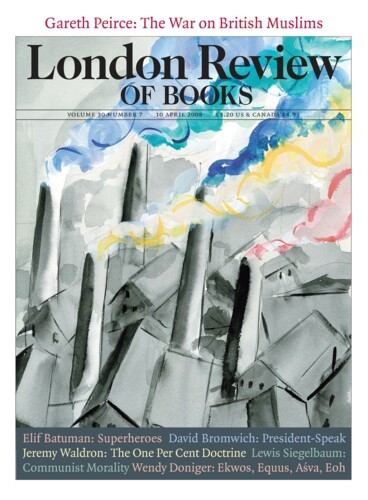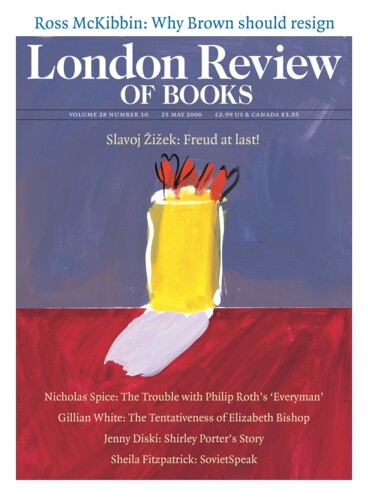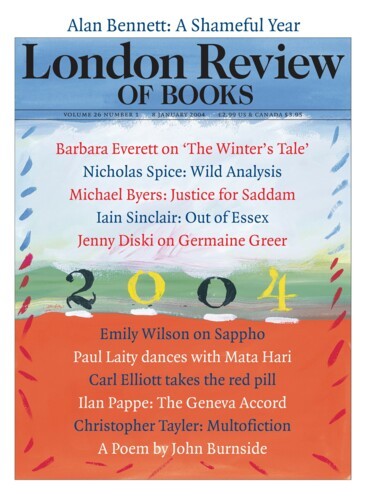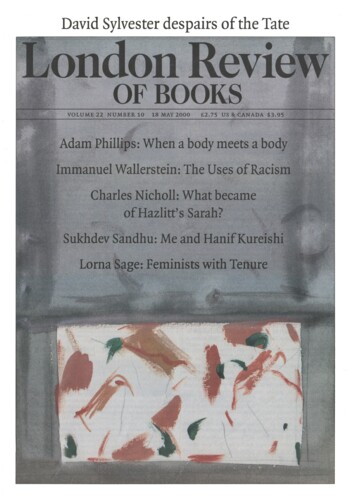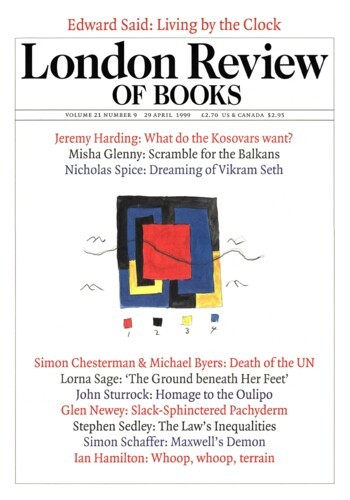Menaces and Zanies: Hanif Kureishi
Nicholas Spice, 10 April 2008
Sometimes what is left out of a poem or a story creates a more arresting sense of reality than what is left in. Keats’s poetic fragment ‘This Living Hand’ ends with the hand thrust towards the reader: ‘See here it is/I hold it towards you.’ The poem’s rhetoric conjures a space in which the spectral hand appears like a hallucination, hovering somewhere...
